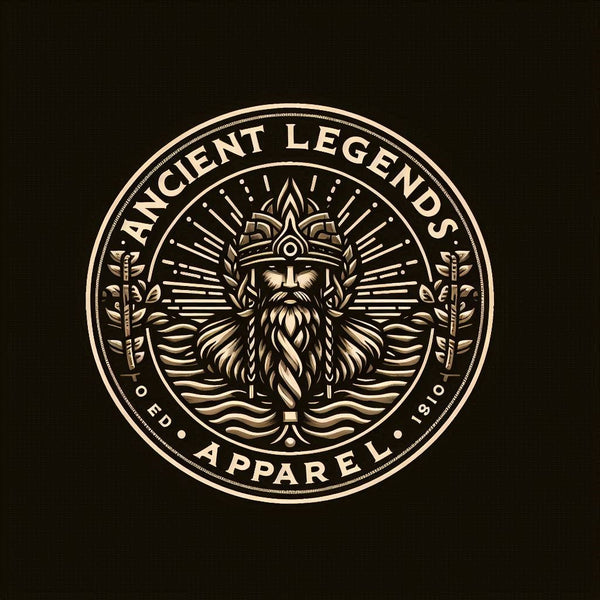Top 10 Greek Mythology You’ve Never Heard Of
Karl FShare
INTRODUCTION
Venture into the enchanting corners of antiquity, to an era where gods and goddesses romped across the heavens, heroes like Hercules battled ferocious monsters, landscapes held secrets of cursed treasures, and everyday occurrences were suffused with divine intervention. Welcome to Greek mythology, a complex, fascinating tapestry woven with tales and legends that have survived the test of time, leading us, intrigued and curious, into the maze of ancient Hellenic folklore. Beyond the well-known legends of Zeus, Aphrodite, or the exploits of the brave Theseus, the broad spectrum of Greek mythology harbors obscure, yet mesmerizing stories. This journey will unravel the top ten Greek myths that remain under the cloak of obscurity but are equally riveting.
ORIGIN AND CULTURAL CONTEXT
Greek mythology originated from an intricate medley of primitive cults, historical events, and the innate human tendency to explain the unexplainable. It was deeply enmeshed in the fabric of ancient Greek society, with tales catering to political, religious, and moral codes which guided their lives. These stories provided the Greeks with an understanding of the universe, their place in it, and, more importantly, the gods who ruled it. Unseen heroes, lesser-known deities and primordial beings proliferating in the cosmic realm form the backbone of the myths that we are about to explore.
THE LEGEND OR STORY
Setting foot in the enigmatic world of lesser-known myths, the story of Baucis and Philemon intrigues with its poignant portrayal of humility and hospitality. An elderly couple, too poor to entertain their guests but generously offering their best to the disguised Zeus and Hermes, were rewarded by the gods with a wish. Their only dream? To die together so they wouldn't have to mourn each other.
Next, the tale of Polyphemus, the cyclops blinded by Odysseus, captivates with its cross-genre combination, blending romance and the grotesque. Polyphemus' yearning for the sea nymph Galatea, who loved the shepherd Acis instead, ended in a tragic climax when the cyclops murdered his rival, turning him into a river.
Moving on to the prophecy of Cassandra, a poignant tale of a woman cursed with the ability to foresee the future but never be believed, heralds a tragic narrative witnessed in the backdrop of the Trojan war.
The tale of the 49 daughters of Danaus, who were forced to marry their cousins, and the chilling aftermath when 49 of them murdered their husbands on their wedding night, incorporates elements of crime, punishment, and atonement.
INTERPRETATIONS AND SYMBOLISM
Following a recurring theme in Greek mythology, the story of Baucis and Philemon serves as a moral teaching emphasizing the virtues of hospitality and humility – two essential principles in Greek civilization. Polyphemus's unrequited love for Galatea seems symbolic of the human condition fraught with desires that sometimes lead to destructive actions, unveiling a darker theme in these legendary narratives. Cassandra's curse is a metaphor for the despair of knowing impending doom without the power to change its course, a cruel jest of fate casting a sinister shadow in these ancient tales. The daughters of Danaus, with their marital betrayal and repercussion, signify the rigid requirement of loyalty towards the vows taken, punishing perfidy in the most severe manner.
COMPARISONS IN OTHER CULTURES
The narratives found within Greek mythology seem a universal human trait, with elements recurring across various cultures. Baucis and Philemon's story resonates with Genesis' tale of Abraham and Sarah who entertained angels unaware. The cyclops is reminiscent of ancient Near-East giants, and parallels can also be drawn with the one-eyed beings in Celtic lore. Cassandra's tale mirrors Norse mythology's prophetess Sibyl, who faced a similar disregard for her prophecies from the gods. The idea of punishment for breaking marital bonds is a common motif across mythologies, reminiscent of the unfaithful women in Celtic and Hindu legends punished for their infidelity.
MODERN REFERENCES AND POP CULTURE
Greek mythology continues to inject vigor into the realm of pop culture. The tale of Baucis and Philemon was central to the collection of Latin poems Carmina, written by Ovid. Love for the nymph Galatea inspired Italian opera with Donizetti's acclaimed "L'Elisir d'Amore." Cassandra's influence is seen in modern psychology with the coined phrase, "Cassandra complex," defining the feeling of doom that no one believes. The horrifying ordeal of Danaus's daughters serves as the premise for the Aristophanes play, "The Suppliant Women."
LEGACY AND LASTING MYSTERIES
While Greek mythology might seem relics of the past, they reverberate through the centuries, leaving an indelible imprint on human culture. The morality, elemental fears, and aspirational hopes embedded in these narratives still resonate in our collective consciousness. From morality plays to operatic dramas, the influence of these myths is undeniable. The continuing fascination with Greek mythology lies in its mystery, its boundless capacity to entertain, enlighten, and most importantly, to make us reflect on our existence. So, let's carry with us these lesser-known tales, along with their symbolism and wisdom, as we navigate the labyrinth of our lives.
